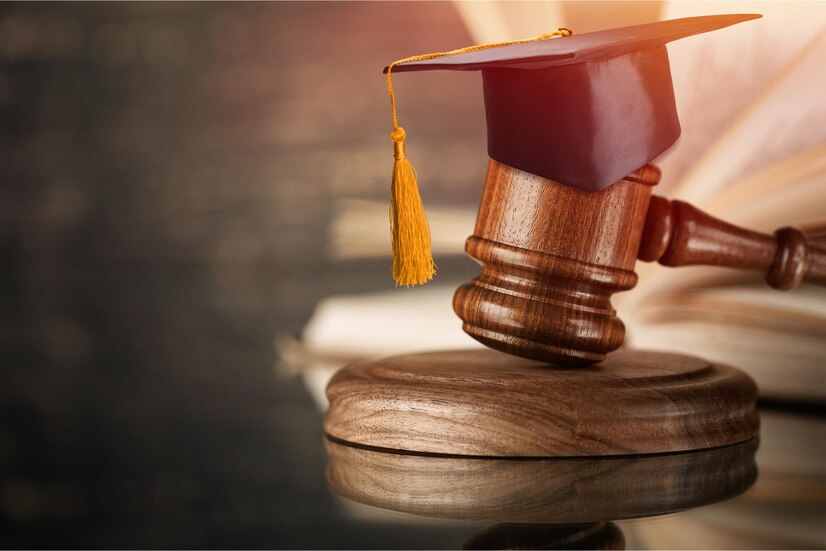
Table Of Contents
Legal Rights Of K-12 Students: A Comprehensive Overview For Parents And Guardians
Education is part of a child’s development. In school, they are imparted with knowledge and have their character shaped and sharpened so that they can navigate life as responsible adults and good citizens. To make this possible, schools should seek to promote some sense of common respect among their students, staff, and parents/guardians. As a parent or guardian of a K-12 student, you should be aware of the legal rights that are there to protect your child’s well-being and education. Here’s an overview of those rights.
The legal rights of children in school are rooted in the principle of everyone having equal protection under the law. Every student, no matter which race they come from, should have equal opportunities to pursue education, including simple things like the freedom to use extra bits of help with homework like https://mypaperdone.com/paper-editing where that is applicable.
The Right To Education
Every child has the right to be allowed to pursue education, and where it is public education, it should be free and appropriate. This includes children who have disabilities, to ensure they are provided with the necessary services and accommodation to access education equally and alongside their peers. For such special children, this includes special educational programs, things like speech therapy, or individualized education plans. If you as a parent know that your child has a disability that may affect their education, you should have them evaluated and work closely with the school to advocate for your child’s rights but also to develop an appropriate plan for them so that they are not left behind in their educational journey.
Protection From Discrimination
Discrimination, especially to a child, should have no place in learning institutions. State laws prohibit discrimination because of things like race, color, sex, religion, and place/country of origin. In all aspects of education, the children are protected from discrimination, from being admitted, the learning programs they’re involved in, to the extracurricular activities they may be involved in while at school. This right includes gender discrimination, which ensures that all genders have equal opportunities in all educational programs and school activities. If you suspect your child is going through a tough time because of possible discrimination, it’s essential to report it to the school administration or seek legal remedies where necessary.
Privacy Rights
The school cannot release personally identifiable information to the public or third parties without the consent of the parent or guardian unless the student is above eighteen and has given consent. Parents also have a right to examine the educational records of their children, request corrections if necessary, and control who has access to them. If your child’s school needs to disclose any private information, they need your written consent, except where special circumstances exist or in case of emergencies.
Protection From Bullying And Harassment
Bullying and harassment can affect a child’s self-esteem negatively, and schools should do all they can to prevent this from happening. This is something that should have no place in schools to maintain a safe and nurturing learning environment for k-12 children. The particulars of anti-bullying laws vary from state to state, but they generally require that schools address bullying incidents when they happen, and they make clear protective guidelines and policies around the subject. As a parent, always encourage your child to speak to you or report any instance of harassment whether from a student or school staff. Get to know what your child’s school policy is regarding this subject as well.
Protection Of First Amendment Rights
Even if they are children or have become students, they still have their First Amendment rights and these should be upheld. These are rights to freedom of speech, religion, and expression, of course with certain exceptions/limitations. They should be allowed, from a young age, to learn to express their views as long as it doesn’t interrupt school activities, or involve harmful speech.
Right To Due Process
Every student should be treated fairly even when they are going through a disciplinary issue. Due process means this happens, which includes being told of the charges being leveled against them, the right to be given a fair hearing, and the right to present any evidence or witnesses they may have to their defense.
Some Of The Specifics Of This Include A Right To:
- Know what behavior is appropriate and which ones are not, by being briefed on the code of conduct or allowing the parents to be aware to pass it on to their children.
- To know the possible consequences of their offenses, which include things like being kicked out of class, suspended from classes, or even expulsion from the school.
- To be accompanied by their guardian or parents during a hearing and know the procedure used by the school to arrive at decisions, the procedure for appeal, and how to make use of any other recourse within the school guidelines.
As a parent or guardian, you have a right to challenge an unlawful expulsion that didn’t follow due process.
Protection From Unwarranted Searches And Seizures
The school officials must have a reasonable suspicion against a student if they are to search their bags, for example believing that the search will uncover evidence of a violation of school rules and regulations. Students are protected from unreasonable searches and seizures by the law.
In addition to the above rights, students also have a responsibility to adhere to the school regulations and behave in a manner that doesn’t infringe on another child’s right to a safe and conducive environment for learning. They should also respect the staff handle school property well, and keep their parents informed on school-related matters.
In conclusion, children’s rights are important as they protect your child’s access to quality education, ensure their safety, and safeguard their freedom. It is crucial as a parent to familiarize yourself with these rights, and also any school documents that speak further on student conduct and discipline issues. Being well-informed benefits both you and your child, so don’t hesitate to know all you can about your child’s legal rights.
Read Also:









